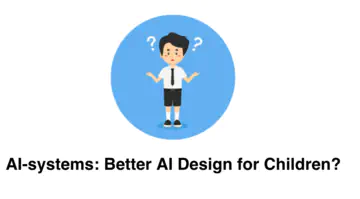Algorithmic Kids

Children nowadays are going online through a much greater variety of means, including smartphones, tablets, smart toys, and IoT devices, and interact with the online environment through a much greater variety of activities, including but not limited to watching videos online, online gaming, social media, and online learning. While online content has opened up significant new opportunities and experiences for children to learn and have fun, there are significant concerns about children going online, especially as they engage in increasing numbers of new digital activities. Such concerns include both health, well-being, and developmental concerns associated with increasing screen time as well a spectrum of direct risks and dangers associated with online environments, including online danger risks, inappropriate content, malicious actors attempting to manipulate, deceive and exploit children, and privacy concerns, among others. Informed by all these risks and concerns around children’s online experience, the concept of `Age-Appropriate Design' has gathered an increasing amount of interest and attention in recent years. This refers to designing technologies that take into consideration children’s developmental milestones and different needs.
Age-Appropriate design is particularly important when it comes to dealing with the algorithmic kids who grow up in this data-driven algorithmic environment, such that their data were used to make decisions about them, either implicitly or explicitly. By algorithmic here, we are not only talking about the purely technical definition of the term, as encoded procedure that transform input data into specific output based on calculations - algorithm = logic + control. Algorithms remain ‘meaningless machines’ accounted for in studies on the socio-technical context of algorithmic practices, where algorithms are viewed as situated artefacts and generative processes embedded in a complex ecosystem. As such, algorithms are only one component in a broader socio-technical assemblage, comprising technical (e.g., software) and human (e.g., uses) components.
By focusing on internet-based applications that build on algorithmic selection as units of analysis and on the societal functions, My Dphil aims to understand the failures and successes of current Age-appropriate design, and extrapolate how might we design for the future in this growing data-driven algorithmic society.
 In CSCW'22.
In CSCW'22.

 In CHI'22.
In CHI'22.

 In CSCW'21.
In CSCW'21.
